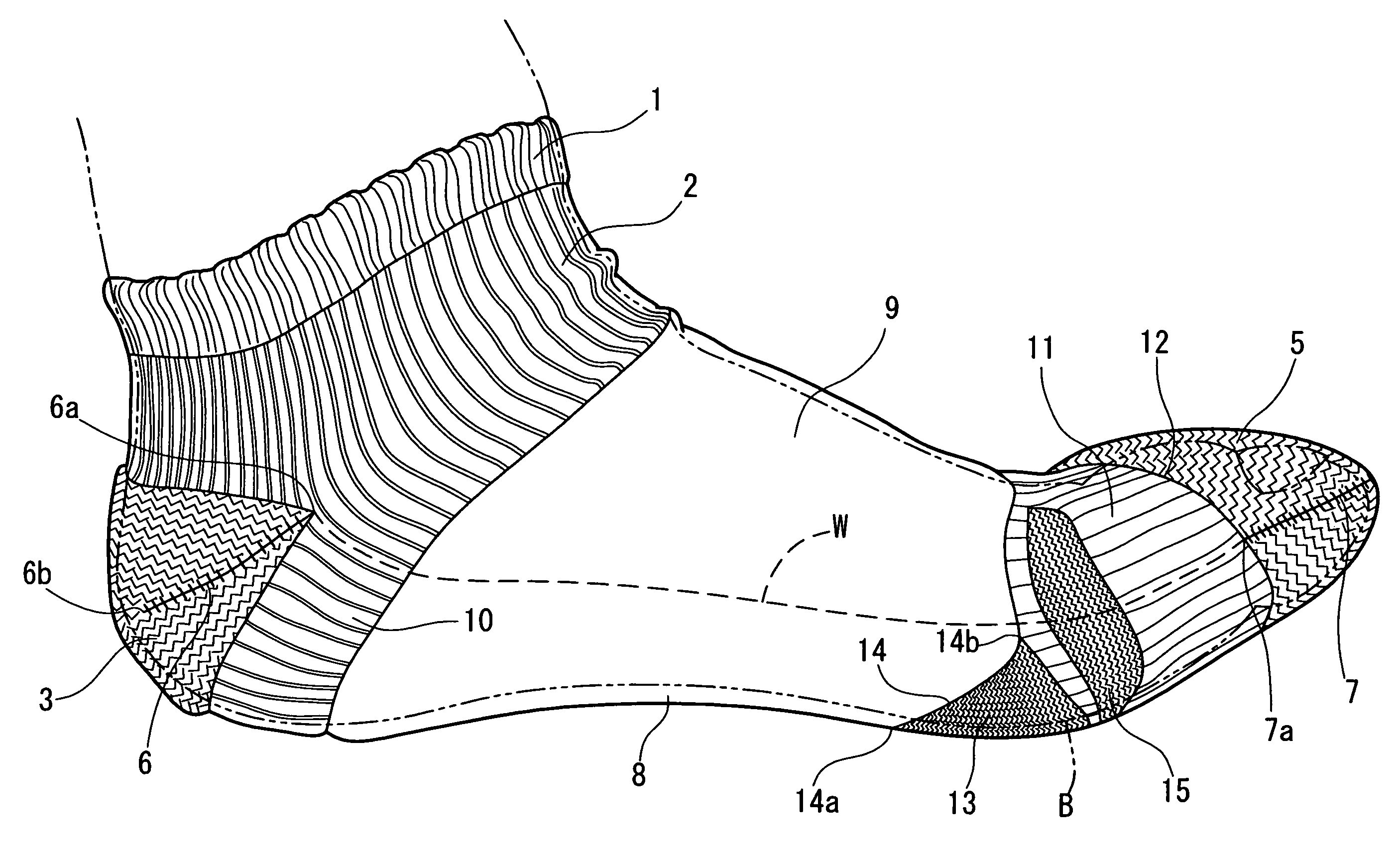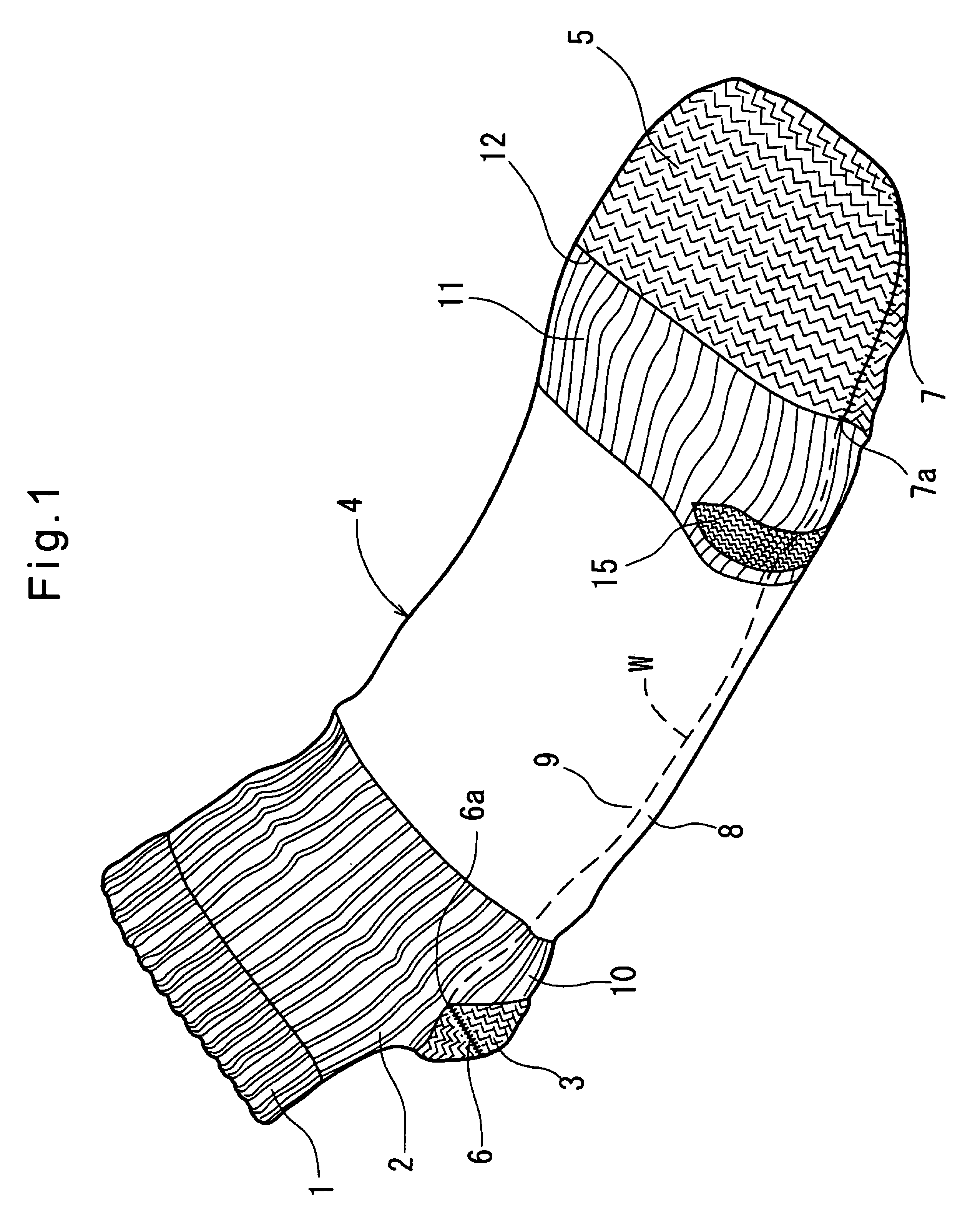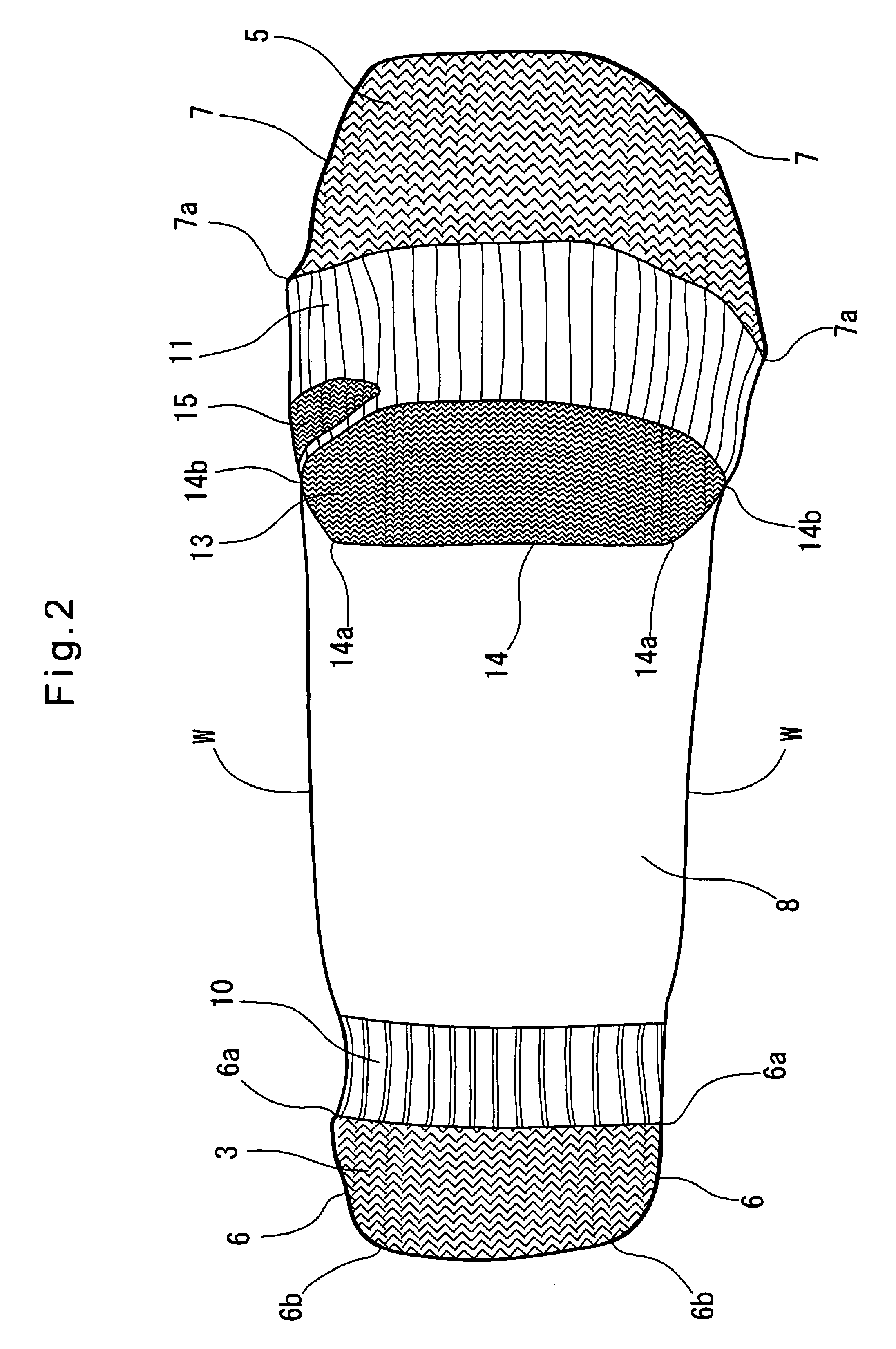Socks
a technology of socks and toes, applied in the field of socks, can solve the problems of slackness on the fifth toe side of the toe portion, japanese patent, however, and achieve the effect of preventing from being pulled
- Summary
- Abstract
- Description
- Claims
- Application Information
AI Technical Summary
Benefits of technology
Problems solved by technology
Method used
Image
Examples
Embodiment Construction
[0020]Now the embodiment of the present invention is described with reference to FIGS. 1 to 3. As shown in FIGS. 1 and 2, the sock of the embodiment is formed with elastic yarn by using a hosiery circular knitting machine and has, in order from the opening side to the toe side, a rib top 1, a leg portion 2, a heel portion 3, a foot portion 4, and a toe portion 5.
[0021]The leg portion 2 is formed in a tubular shape at the lower end of the rib top 1, and the heel portion 3 is formed on the sole side of the leg portion 2 by forward / reverse half-turn movement or the like of the hosiery circular knitting machine. The foot portion 4 is provided in a tubular shape so as to be continued from the instep-side end of the leg portion 2 and the toe-side end of the heel portion 3. At the toe-side end of the foot portion 4, in a manner similar to the conventional technique, the toe portion 5 is formed so as to be fit to the toe shape.
[0022]When the heel portion 3 is formed, heel-side gore lines 6 ...
PUM
 Login to View More
Login to View More Abstract
Description
Claims
Application Information
 Login to View More
Login to View More - R&D
- Intellectual Property
- Life Sciences
- Materials
- Tech Scout
- Unparalleled Data Quality
- Higher Quality Content
- 60% Fewer Hallucinations
Browse by: Latest US Patents, China's latest patents, Technical Efficacy Thesaurus, Application Domain, Technology Topic, Popular Technical Reports.
© 2025 PatSnap. All rights reserved.Legal|Privacy policy|Modern Slavery Act Transparency Statement|Sitemap|About US| Contact US: help@patsnap.com



